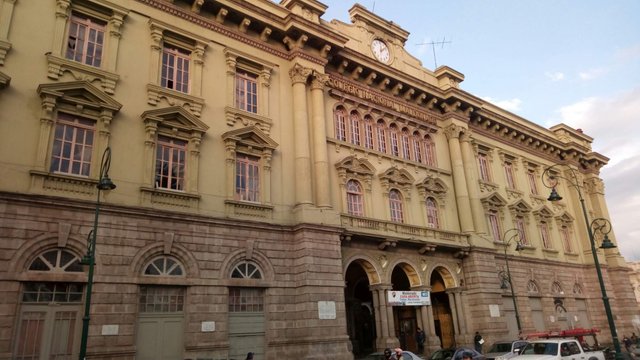I don't understand

I've been thinking for a few days now about this subject, and I'm yet to make sense of it all. I mean, I lack the knowledge to understand why a country like Ecuador could depend on global markets while at the same time have a considerable low cost of living. This is to say basically, that imports are high and plenty but a meal for $2.50 is pretty much standard.
What is even more surprising to me is that people seem to be able to save. This in contrast to the economic landscape of USA were people for the most part have little to no savings, is somewhat contradictory to me. I mean, wages here are low, very low that is, and someone making $1000 a month is someone who is doing well, but buying a simple family car is still above $15k, and yet cars are plenty.
Of course we can talk about living with more simplicity and thus not having the constant need to buy new things everyday. Sure, that is part of the economical landscape, but I feel I'm missing something else, a key element that allows for basic goods to both be in high demand and remain low in cost.
I guess I should try to find an economist and bombard him/her with questions until I'm either satisfied or more confused.
Posted using Partiko Android
In America citizens are bred to be consumerists and live paycheck to paycheck. I hardly make any money and yet am able to easily save more than the vast majority of people I know.
Excellent review @meno and I think it all depends on the solvency of the people of Ecuador, that is, the goods are worth as much as people can really pay for them.
I suspect the single biggest factor that explains the difference between the US and Equador is the flow of foreign capital. The US attracts a lot of foreign capital because of the stable government, high growth rate, stable currency, and the predictable cost of doing business.
It has been like this for so long that people in the US take it for granted. They don't realize that the party will end as soon as the world finds a better investment somewhere else.
At various times in the past 100 years Brazil, Venezuela, and Argentina have all looked like promising candidates for long term growth. If fresh water becomes the new oil Brazil might become the new Saudi Arabia. That is really a different kind of wealth, though. If South America is going to make an economy like the US it can't just come from a flood of money for oil, water, or other natural resource. Sustained growth comes from human resources, not natural resources.
Posted using Partiko Android
I suspect you are right on the money professor.
It’s all about the leverage created by the financial system that creates debt and distributes to those that will not able to be pay. It is the everything bubble we live in today. Remember, the fiat we hold is a paper contract that says the issuing party owes us that amount. Based on what? Just trust...
Posted using Partiko iOS
Hello @meno.
Interesting analysis It is a good idea to identify the variables involved in this economy, as well as to put it into practice. Beyond the theory of supply and demand, which other variables are involvedTo listen to the audio version of this article click on the play image.

Brought to you by @tts. If you find it useful please consider upvoting this reply.